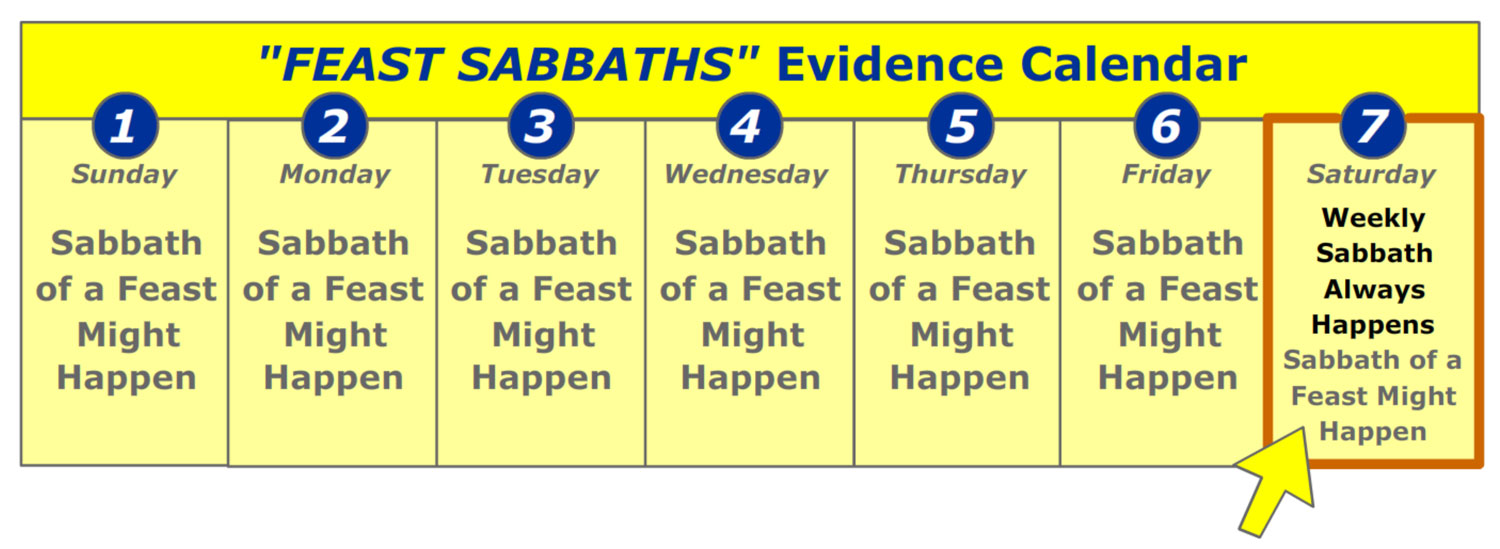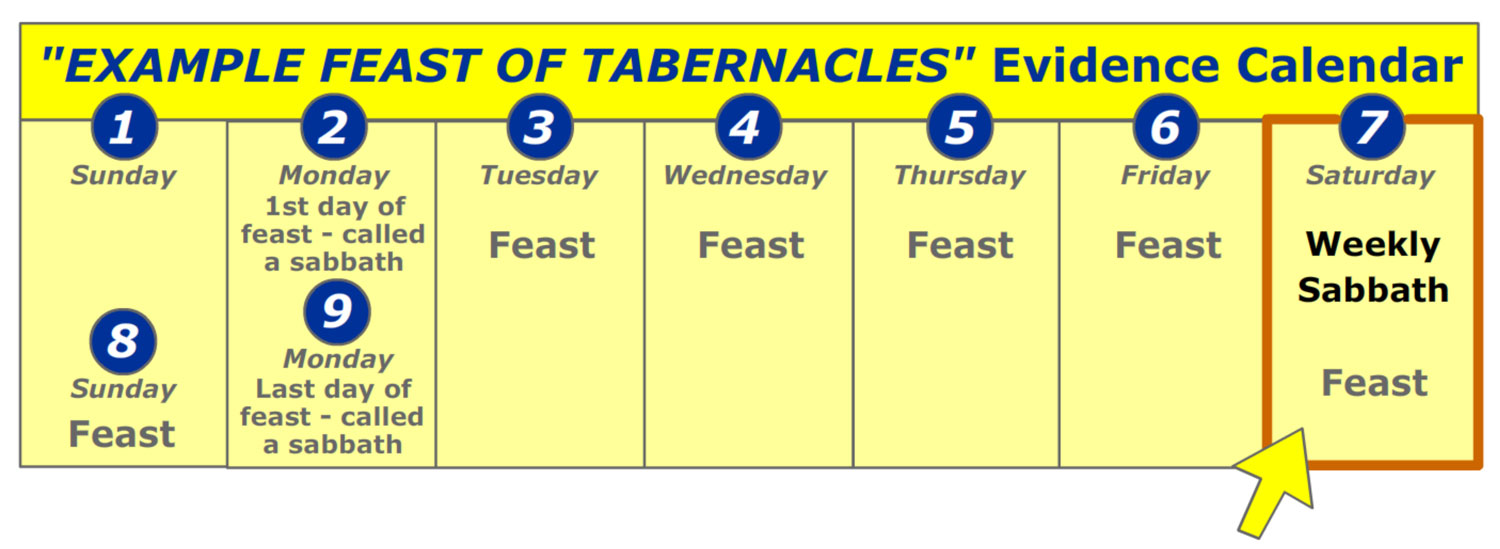
Calendar Series

There were seven ceremonial Sabbaths that were associated with the feasts. These would fall at different times of the week. The feasts and sacrifices that pointed to Christ were done away with when Christ died on the cross. The associated feast sabbaths also ceased to exist at that same time. However, the weekly Sabbath is not a feast sabbath, but a part of the 10 commandments, which did not cease.
The First Day Follows the Sabbath
When the Lord explained the feasts in Leviticus 23:3, he started by saying "Six days shall work be done: but the seventh day is the sabbath of rest, an holy convocation; ye shall do no work therein: it is the sabbath of the Lord in all your dwellings." This text refers to the Sabbath of the 10 commandments.
The Lord then added special sabbaths to be celebrated during the feasts. Leviticus 23:24 "Speak unto the children of Israel, saying, In the seventh month, in the first day of the month, shall ye have a sabbath, a memorial of blowing of trumpets, an holy convocation. Leviticus 23:39 "Also in the fifteenth day of the seventh month, when ye have gathered in the fruit of the land, ye shall keep a feast unto the Lord seven days: on the first day shall be a sabbath, and on the eighth day shall be a sabbath."
For example, the following calendar
shows the two sabbaths of the Feast of Tabernacles
when the 1st and 8th days were on a Monday:

These are examples of Sabbaths connected
with the feasts. There were seven sabbaths
connected with the feasts. These sabbaths
occurred on any day of the year just
like Christmas is not always on Tuesday.
The Seventh Day Sabbath to be Separate
Leviticus 23:37-38 "These are the feasts of the Lord, which ye shall proclaim to be holy convocations, to offer an offering made by fire unto the Lord, a burnt offering, and a meat offering, a sacrifice, and drink offerings, every thing upon his day: Beside the sabbaths of the Lord, and beside your gifts, and beside all your vows, and beside all your freewill offerings, which ye give unto the Lord."
The last verse describes things that are done even if there were no feasts. The word translated to "Beside" used in the text above means "separation" or "apart" in Hebrew. The sabbaths of the Lord were to be kept separated from the feast sabbaths.
The Feast Sabbaths Done Away With
The following text describes how the feast Sabbaths were done away with when Christ died on the cross.
Col. 2:14-17 "Blotting out the handwriting of ordinances that was against us, which was contrary to us, and took it out of the way, nailing it to his cross; And having spoiled principalities and powers, he made a shew of them openly, triumphing over them in it. Let no man therefore judge you in meat, or in drink, or in respect of an holyday, or of the new moon, or of the sabbath days: Which are a shadow of things to come; but the body is of Christ."
No where in the 10 commandments does it talk about meat, drink, holyday, new moon. So, we can see that what was nailed to the cross were the ordinances contained in the ceremonial law (sacrifices, cleansings, feasts, etc. that were shadows pointing towards Christ). The very things mentioned in Col. 2:14-17 are also mentioned in Leviticus 23. The latter points out that these were besides the Sabbath, gifts, vows, and freewill offerings. The weekly Sabbath is separate and unaltered.
In the next "Calendar of Evidence" we will look at the definitions and calendars that man has created.